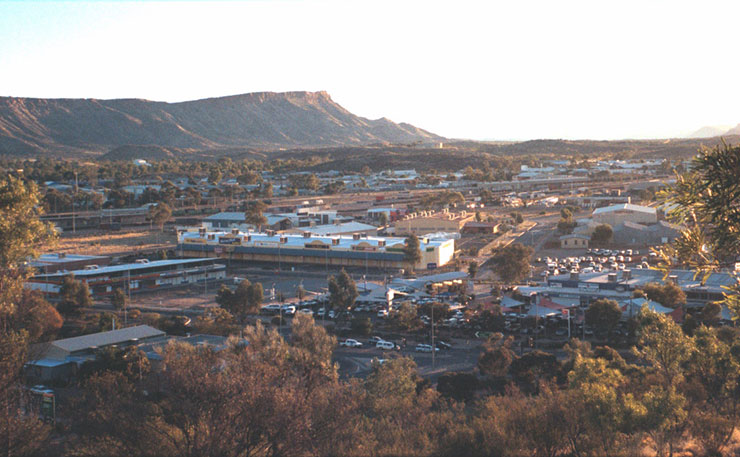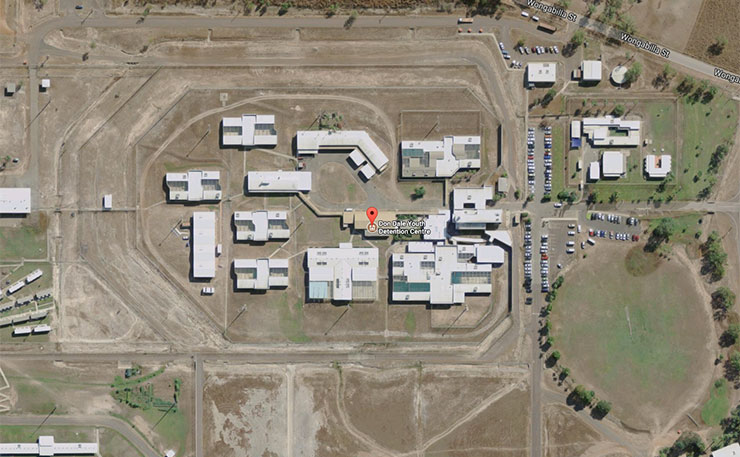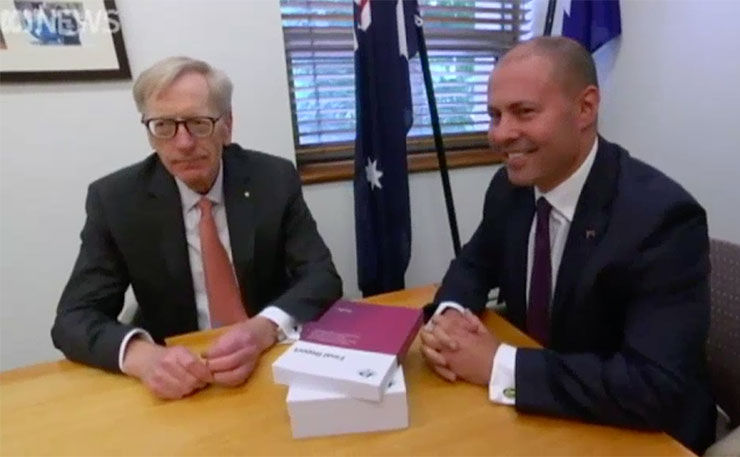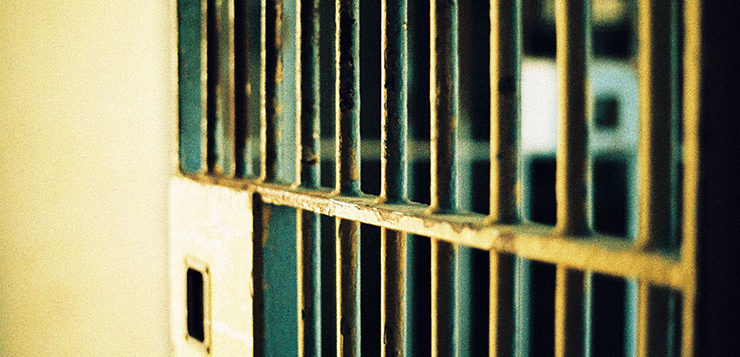DON’T MISS ANYTHING! ONE CLICK TO GET NEW MATILDA DELIVERED DIRECT TO YOUR INBOX, FREE!
Royal Commissions in Australia are increasingly common, very expensive and, despite their importance, frequently ignored. Sophie Trevitt explains.
As disappointment and disaffection in our political system grows, the public are increasingly looking elsewhere to expose wrongdoings and seek justice. Calls for a Federal ICAC are growing and it feels like Royal Commissions are being called at an ever-increasing rate.
But what is the point of Royal Commissions if the governments ignore their recommendations?
The Royal Commission into the Protection and Detention of Children in the Northern Territory (NT Royal Commission) was completed 18 months ago. Many of its recommendations have gone unheeded. Some have been blatantly breached.
As the Hon Kenneth Hayne, the Commissioner responsible for investigating the Banks, said:
“The increasingly frequent calls for Royal Commissions in this country cannot, and should not, be dismissed as some passing fad or fashion. Instead, we need to grapple closely with what these calls are telling us about the state of our democratic institutions.”
They tell us that the state of our democratic institutions is poor.
Confidence in Australia’s democratic system is at an all-time low. Less than “41% of Australian citizens are satisfied with the way democracy works”. More than 60% of Australians believe that the integrity of politicians is very low.
Could this be because when wrongdoings are exposed politicians promise “never again” but then fail to deliver on those promises? This appears to be the case in the Northern Territory.
For years, children were abused in dark cells and substandard facilities in Alice Springs and Darwin. Children were locked in cells for days at a time, subjected to taunts, abuse, physical restraint, a lack of education, isolation – the list goes on.

On Monday 12 August 2019, the NT Government made a long-awaited announcement about the location of the new Don Dale youth detention centre site. It announced that the new facility will be built 300 meters down a dirt road from the adult prison in Holtz. That means it will be inaccessible to the families of these kids by public transport, it will take children out of their communities; and it will create a literal, walkable pathway from juvenile detention to adult prison.
The NT Royal Commission was clear about the location of any new youth justice facilities. It said: “the new facilities should not be located on, or in close proximity to, adult prison precincts.”
BE PART OF THE SOLUTION: WE NEED YOUR HELP TO KEEP NEW MATILDA ALIVE. Click here to chip in through Paypal, or you can click here to access our GoFundMe campaign.
The President of the Law Council of Australia Arthur Moses on Wednesday 14 August called the announcement a “travesty.”
Yet the announcement in August is just the latest in a long line of recommendations the NT Government has chosen to dismiss or ignore despite its own claims that the status quo is failing, and a new era of youth justice is needed.
In March 2019, the NT Government reversed amendments to the Youth Justice Act which it had passed in response to the 4 Corners episode ‘Australia’s Shame’. That episode revealed the widespread abuse and dire conditions of the Don Dale and Alice Springs youth detention centres. Minister for Territory Families Dale Wakefield described the laws it passed last year as “amendments which introduced greater transparency and accountability within our youth justice system. They were amendments that reflected the evidence that was uncovered by the Royal Commission.”
Despite her own commentary on the need for these additional safeguards to be enshrined in law; on 24 March 2019 Minister Wakefield reversed many of the restrictions on the use of force, restraints and isolation of children that she had put in place a year earlier. This extraordinary backflip came without any notice or consultation, and bypassed the normal democratic processes of the NT Parliament. Minister Wakefield made the reversal retrospective so that breaches of those laws over the last 12 months could not be pursued by lawyers on behalf of their child clients.
The Minister did not shy away from her intention to inoculate the government against possible legal action on behalf of these children. She said in Parliament:
“We need these amendments to apply retrospectively to ensure that any ambiguities, which allow lawyers to pursue technical arguments about breaches of laws, are addressed, so that departmental resources can be used for putting young people back on track rather than legal processes.”
At a community stakeholder meeting in April, the Minister made similar claims that the retrospective amendments were necessary to avoid legal action on behalf of children who were transferred from Alice Springs to Don Dale against their will, or were subjected to extensive lock downs or isolation. She specifically referred to Territory Families staff being required to work weekends to defend legal injunctions as lawyers tried to stop Territory Families from sending children hundreds of kilometres away from their families. (Of course an alternative to fighting these kids’ lawyers on weekends would be to adhere to the Royal Commission recommendations and keep children close to family, country and community.)

In May 2019, the Minister announced that the outdated, often overcrowded, not fit-for-purpose Alice Springs youth detention centre would not be replaced like its counterpart in Darwin. Instead it would receive $10 million for ‘refurbishments.’
This announcement was delivered despite the Northern Territory Government accepting that “new, purpose-built detention accommodation is needed” and the then-Deputy CEO of Territory Families telling the NT Royal Commission that the current centres “have no therapeutic value and we have to do things vastly differently”.
In June, further amendments were introduced to the Youth Justice Act. In these, promises to raise the age of criminal responsibility from 10-years-old to at least 12 – with 14-years-old being the youngest age any child should be imprisoned – were reneged on.
Why? Territory Families told the scrutiny committee that the critical reform to raise the age of criminal responsibility – a reform that every submitter to the committee was in favour of – was difficult for ‘operational’ reasons.
However, on other occasions at community and stakeholder meetings in Alice Springs, which the author attended, both the Minister and Territory Families CEO Ken Davies have referred to community sentiment, as identified by door knocking members of parliament, as being a key factor in the delay in implementing the Recommendations.
What happened to leadership?
On 13 August 2019 the National Indigenous Legal Conference was held in Darwin, and Aboriginal lawyers, leaders and workers in Aboriginal-controlled organisations from around the country gathered in the NT’s capital to talk about ‘True Justice.’ Following along the hashtag #NILCIHJC2019, the words of Barb Shaw – Chairperson of the Aboriginal Medical Services Alliance of the NT (AMSANT) and CEO of Anyinginyi Health Service – appeared frequently:
“The statement by the NT government to put the new Don Dale next to the adult prison undermines the trust in the Royal Commission and its process.”
“It is also disappointing to see the Northern Territory Government waver in the face of a recent campaign to water down the reforms.”
This is the gap between recommendations and action that Commissioner Haynes alluded to in his speech when he reflected on the limits of Royal Commissions. He said, “a Commission cannot decide any issue. It can only make recommendations.”
And so the question remains: if the ever-frequent calls for Royal Commissions are a response to a public lack of trust in democratic institutions and political capacity, what is the purpose of calling Royal Commissions if governments then refuse to implement their recommendations?

And what is the appropriate response of citizens, institutions and the legal profession?
The NT Royal Commission heard not only from the children detained in the broken youth justice system, but also examined almost 30 years worth of reports, inquiries, inquests and commissions that related to their Terms of Reference. This made up a body of research of over 50 documents which contained many common themes about the urgent need for self-determination, Aboriginal decision-making and consultation.
The Special Counsel Assisting said, “it invites the question as to whether there is a need to confront some sort of ‘Inquiry mentality’ in which investigation is allowed as a substitution for action, and reporting is accepted as a replacement for results.”
Eighteen months after the NT Royal Commission findings were handed down, many in the Northern Territory are confronting whether that inquiry mentality is again at play. Worse, whether the Royal Commission is being used as a cover for inaction; where the Minister can produce a media release which says “replacing the Don Dale Youth Detention Centre with a new purpose-built Youth Justice Centre is a key recommendation from the Royal Commission into the Protection and Detention of Children in the NT” without mentioning that it is in direct contravention of the recommendation that no new facilities be built in proximity to adult correctional centres.
Those of us who had hoped the atrocities revealed in the Northern Territory would serve as a warning to the rest of the nation will also be bitterly disappointed.
In September, the South Australian Ombudsman revealed that spit hoods are still being used in South Australian youth detention centres.
In October, there were mass sackings of youth detention staff in Queensland as a result of corruption, criminal activity and the excessive use of force against children.
Currently there are ongoing lock downs in Victoria as tensions between young detainees and staff spiral out of control in the Malmsbury youth detention centre.
Just last week the NT Ombudsman tabled his Annual Report. In it, he identified that allegations of excessive force remain a common complaint, and that NT Police frequently fail to turn on their Body Worn Cameras – ultimately avoiding transparency and scrutiny of their conduct with some of the most vulnerable members of our community.
He details an extremely disturbing incident that involved the arrest and detention of a teenage girl who was making threats to self-harm. She was forcibly stripped and left naked in a police cell for over an hour. NT Police were cleared of wrongdoing.
The Annual Report also sets out 17 recommendations of the Royal Commission which pertain to NT Police. They include reforms such as having a properly trained and qualified youth diversion unit, that NT Police are properly and regularly trained to deal with young people (and young people with neurodevelopmental issues), and that the NT Police General Order on Youth is revised and updated.
The NT Police reported back that they had started work on four of these recommendations – almost two years after the NT Royal Commission published its findings.

Commissioner Hayne provided no answers in his July speech but he diagnosed the problem as one which is fundamental to “the way our democracy is operating and the premises that underpin the structures of our government,” and one that should be considered “in relation to all three branches of government – legislative, executive and judicial.”
The experience in the Northern Territory bears this out.
There is something broken in all three branches of government when the executive is introducing retrospective laws to protect itself against legal action for its own wrongdoing.
There is something broken in the legislature when it acquiesces and passes these laws despite the absence of due process or evidence of their public interest.
And there is something broken in the judiciary and in the legal sector when judges are able to disparage and belittle those who appear before them on the basis of their Aboriginality, and the legal sector’s response is disappointment that those comments were ventilated in public, rather than the swift condemnation of racism in the courtroom.
The three separate branches of the Westminster system are supposed to act as checks and balances on each other. It is difficult to see how progress will be made so long as they fail to do so, and it’s difficult to see how the wrongdoings exposed by Royal Commissions will be rectified.
BE PART OF THE SOLUTION: WE NEED YOUR HELP TO KEEP NEW MATILDA ALIVE. Click here to chip in through Paypal, or you can click here to access our GoFundMe campaign.
Donate To New Matilda
New Matilda is a small, independent media outlet. We survive through reader contributions, and never losing a lawsuit. If you got something from this article, giving something back helps us to continue speaking truth to power. Every little bit counts.




